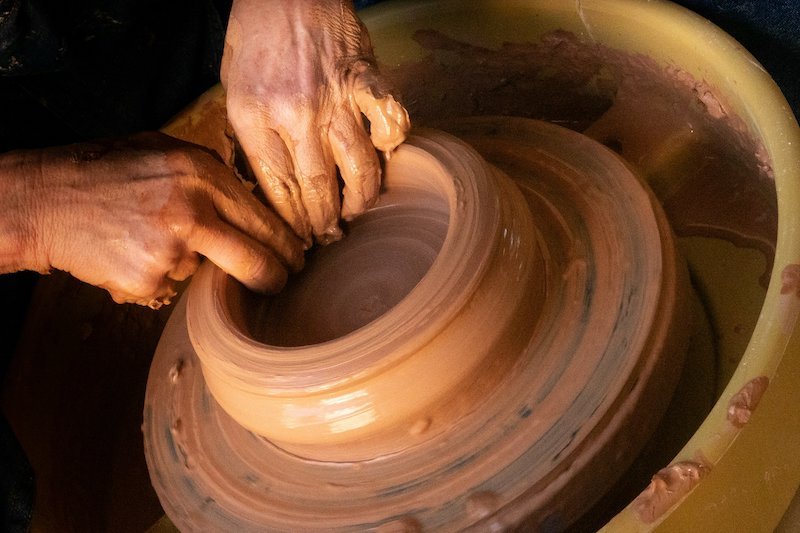Your Therapist Doesn’t Have the Answers. You Do.
“Am I normal?” “Did you know?” “How far back does this go?”
These are some of my favorite moments in the session. When clients become curious about themselves and their wiring, we are on to something great.
There are a few assumptions that people have when they learn I’m a psychotherapist. Some assume that my job is to give advice; and that I can and will psychoanalyze them. The latter may be partially true. The former is, fortunately, a myth.
Depth psychotherapy is unlike most other markets we pay for in capitalism. We’re not selling you a product. You can’t screenshot or capture it. It constantly changes and updates on its own, without any downloads. If you stay with it, something inside you expands.
There is an inner compass that we all hold. We know the way to go, the direction we would choose. On some profound level, we know and love ourselves, despite our messiness. If only we were in touch with this compass, we could move through life a little easier. We could choose for ourselves, let it all happen, and role with the rockier waves of life. We could find peace. Life wouldn’t always go our way, but we’d be okay when it didn’t. We wouldn’t resist. We would welcome whatever came: sorrow, rage, confusion, fear, grief, and feel it all along the way. We could stay in the process of our lives.
On Advice
I don’t see myself as all-knowing. I’m in no position to give advice or tell others what they should do. In intricate areas of life, like personal decisions, inner understandings, and commitments, I don’t believe anyone “knows” what the right thing is, and I think we should be wary of anyone who acts as if they do. Seeing myself as an advice giver puts me in a dangerous spot-a place of power and promise, one in which I know I’d eventually fail.
As a therapist, I am dedicated to staying with the process and supporting clients in figuring it out for themselves. As we grow and evolve across our lifetimes, we all must learn to steer our ship. We all have our paths to walk.
Consumerism as Avoidance
Believing that someone has the answers to the process of life is tantalizing. Sadly, we cannot apply the same approach to self-discovery as we do to most daily purchases. We are brainwashed to believe the latest product will bring lasting happiness or that our material possessions will make us feel whole. Capitalism would like us to believe it has the answer to our current predicament. Yet nothing external can soothe the process that is hurting inside. A fallacy that many structures of society would have us believe: Society’s most severe and ignored addiction is consumerism.
Thankfully, life becomes a lot easier when we learn how to let life live through us instead of figuring it out or filling the void with something outside of us. When we allow life to unfold instead of trying to control it, we enjoy the experience much more. We only need to learn how to be with life while it’s happening. We only need to stay present for it all. The challenge is that it’s hard to stay with the pain: no one showed us how.
Coping Mechanisms
A common term in addiction and recovery, coping mechanisms are the ways to soothe ourselves amongst the problems and challenges we are experiencing at any current stage of life. When we drink and use substances more during a pandemic, we are finding ways to cope. Maybe we need an escape or a soothing; perhaps we need to alter ourselves inwardly, finding relaxation when stuck at home in a time of uncertainty. Before COVID, maybe we needed to adjust ourselves: we drank to become more social.
Another coping mechanism is to deflect from our deeper feelings within ourselves. We defend against our fear and project our pain onto others. Some of us cope by freaking out and try to control others. We expend our energy blaming others instead of working on bettering ourselves. Much of the political divide is centered around this process. We can spend most of our time focusing on the problem in the others. Yet we, after all, are in charge of our lives.
If we can understand how we cope with life challenges, we can get to know ourselves better. If we knew that when we get depressed, we tend to start drinking, we would be on the path towards finding alternative outlets that might cause us less harm. If we realized that when we’re lonely, we pick up our phones to scroll social media, we would be one step towards engaging with our loneliness.
Curiosity opens us.
For my clients who want to understand themselves better, there is a curious drive to learn about their complexities, inner worlds, conflicts, and feelings. “I love the process- it feels like we’re trying to solve a puzzle,” a client says when we have a powerful session. It is an admirable voyage; we open when we engage with ourselves. When we are disengaged or cut off from ourselves, we’ll miss what’s happening, lost in another world that confuses our heart’s desire with a craving.
The problems arrive when we defend against life and what it brings to us through denial and avoidance. When life meets us with despair, we must learn to let that pain move through us. The way to let life live through us means we must find the strength to take it in, digest, compost, and fertilize. Churning through the pain and the fear, we might use our pain to take action and create something else.
I am cautious when a client asks me what to do in a particular situation. While I assist in their process, clients develop their capabilities to navigate the struggles that will meet them at different stages of their lives. I don’t tell people what to do, thankfully. I make it safer for them to feel whatever they feel while going through it. I’m not giving advice; I’m providing an experience—one in which we can all feel and choose for ourselves.
The goal of psychotherapy isn’t to feel better but to get better at the feeling.
Beyond finding solutions to momentary problems, psychodynamic therapy offers a place to experience a process. One in which you learn how to navigate issues independently by expanding your self-understanding and creating a sustainable way of navigating your inner world, no matter what the outer world offers up.
Few of our early environments taught us how to engage with these complexities within us when we get confused, off-centered, and stuck in places that feel heavy. The feelings are often our roadmap- if only we knew how to listen and explore them. Recently, a client said, “I’m not sure I know how it works, but I’m starting to trust the process.” We don’t know where his life will lead in the middle of a personal crossroads, but we are trying to help him navigate it better.
If you are looking to take some new steps and need some help starting your life transition to a happier you, reach out to me.



